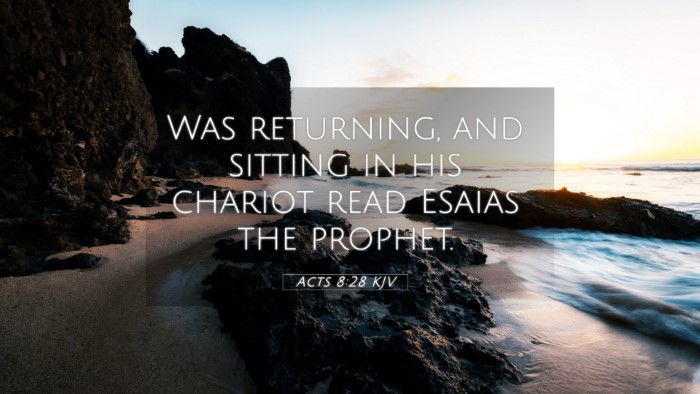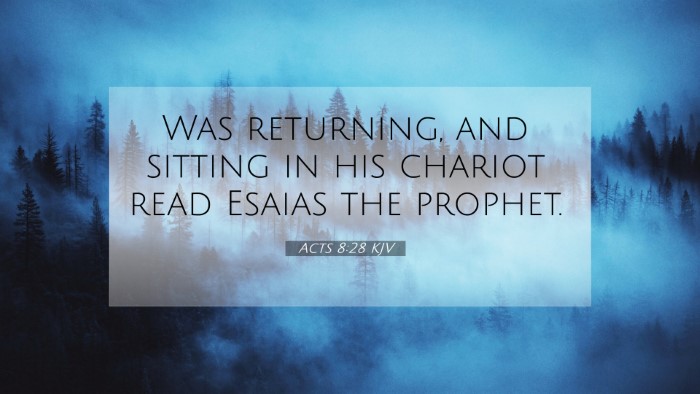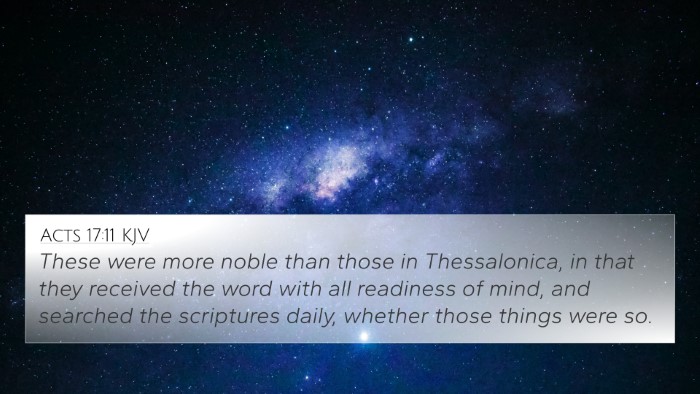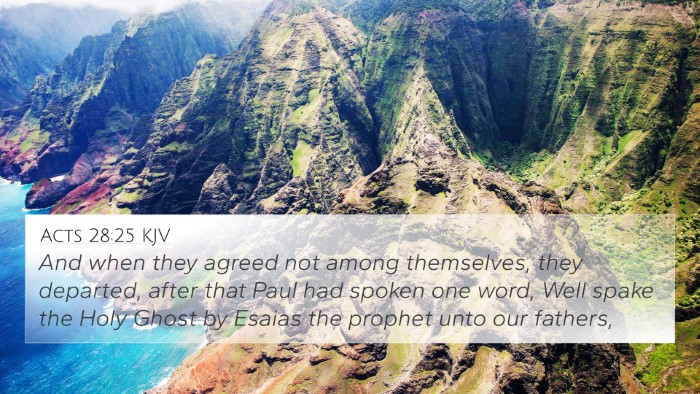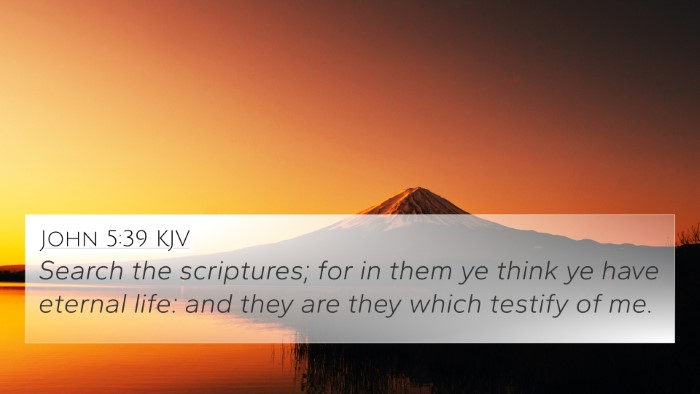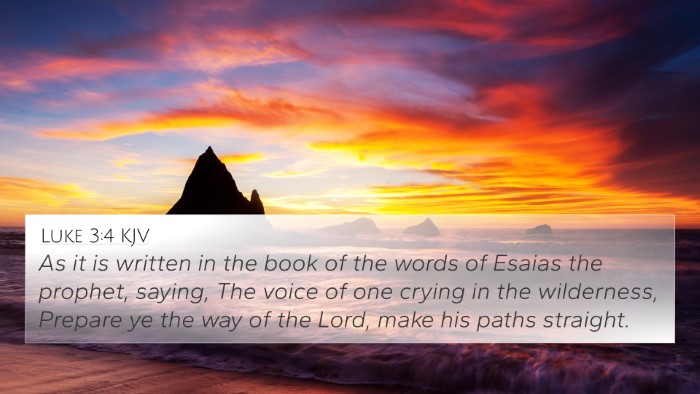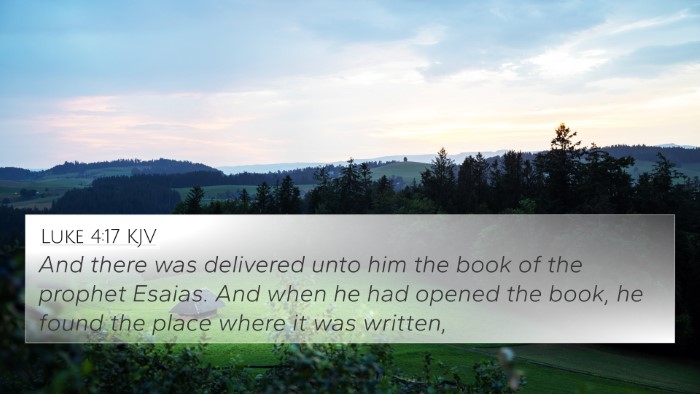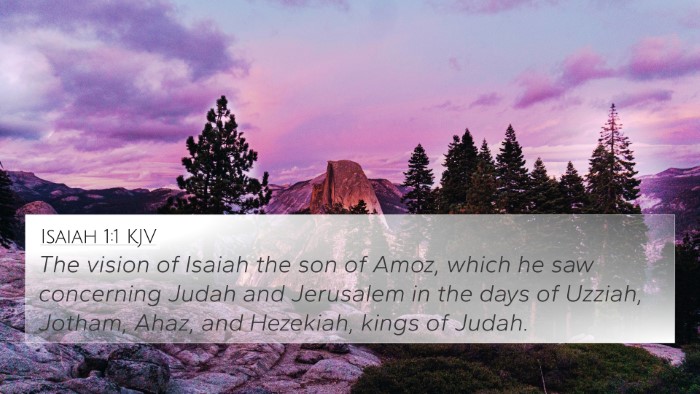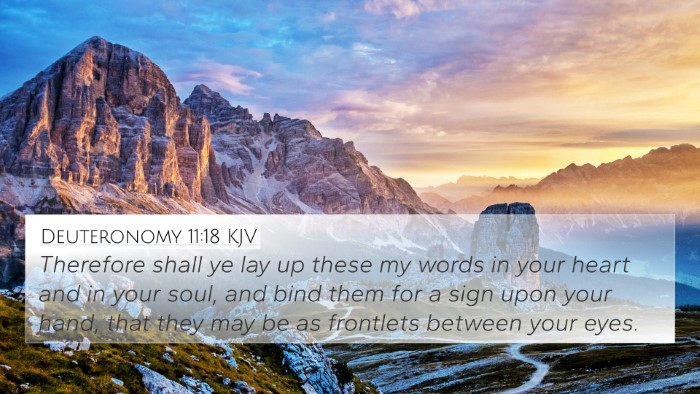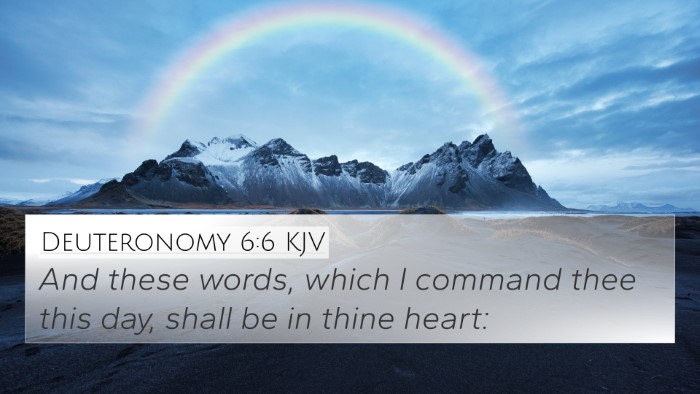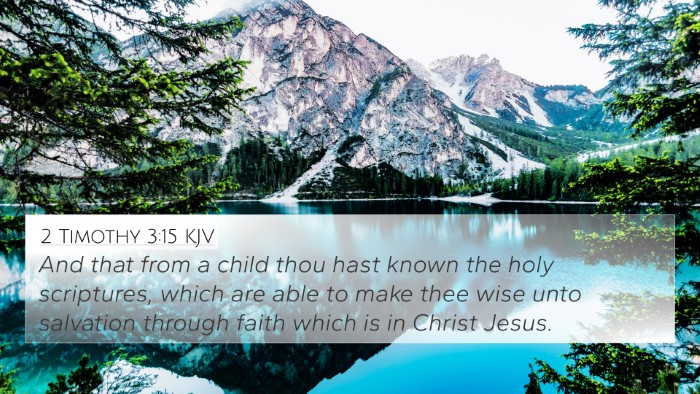Meaning and Interpretation of Acts 8:28
Acts 8:28 states: "He was returning and sitting in his chariot, and he was reading Isaiah the prophet." This verse is rich in meaning and context, revealing important insights into both the figure of the Ethiopian eunuch and the work of the Apostle Philip.
Contextual Analysis
This verse occurs within the narrative of Philip's divine appointment to encounter the Ethiopian eunuch, a man of high position who was seeking understanding of Scripture. This encounter is pivotal as it illustrates the expansion of the Gospel beyond Jewish boundaries and into the Gentile world.
Commentary Insights
- Matthew Henry: He emphasizes the eunuch's genuine search for truth, highlighting the importance of personal engagement with Scripture. This indicates a heart open to divine truth, illustrating that God reaches out to those who seek Him earnestly.
- Albert Barnes: Barnes reflects on the significance of the eunuch's role as a seeker. His reading of Isaiah symbolizes God's providence as He prepared both the reader and the messenger for a divine revelation.
- Adam Clarke: Clarke points out the cultural and spiritual contexts of the eunuch's background. As a high official, his seeking of God’s word underlines a deep humility and an acknowledgment of a truth beyond earthly authority.
Thematic Connections
Acts 8:28 can be linked thematically to various Bible verses that echo similar sentiments of divine pursuit and revelation:
- Isaiah 55:6-7: "Seek the LORD while he may be found; call upon him while he is near." This mirrors the eunuch's quest for understanding.
- Jeremiah 29:13: "You will seek me and find me, when you seek me with all your heart." It illustrates the heart’s desire to know God.
- Philippians 2:12: "Work out your own salvation with fear and trembling." Reflects the personal responsibility to seek and understand God's word.
- Luke 19:10: "For the Son of Man came to seek and to save the lost." Highlights the purpose of Christ, paralleling the eunuch's need for salvation.
- Romans 10:14: "And how are they to believe in him of whom they have never heard?" Connects to Philp’s role in explaining Scripture to the eunuch.
- Acts 10:34-35: "God shows no favoritism but accepts from every nation the one who fears him and does what is right." Reinforces the theme of God welcoming all who seek Him, regardless of cultural background.
- 1 Peter 1:25: "... but the word of the Lord endures forever." Highlights the significance of Scripture as seen in the eunuch's reading from Isaiah.
Cross-Referencing in Biblical Texts
In studying Acts 8:28, it is crucial to engage in cross-referencing and analyzing other scriptures that relate to the themes of seeking God, receiving understanding, and the spread of the Gospel beyond Israel. Here are methods and tools for effective Bible cross-referencing:
- Using a Bible Concordance: This resource helps to find related verses based on keywords.
- Bible Cross-Reference Guide: Such guides can aid in locating thematic connections between different scriptures.
- Cross-Reference Study Methods: Techniques include thematic studies, character studies, and contextual studies that explore inter-Biblical connections.
- Bible Reference Resources: These can include study Bibles and commentaries that engage with the text deeply.
User Intent and Learning
When seeking deeper understanding of Acts 8:28, consider questions such as:
- What verses are related to Acts 8:28?
- How do Isaiah’s prophecies connect with the New Testament teachings?
- What are the similarities between the eunuch's experience and those of other seekers of truth in the Bible?
Conclusion
Acts 8:28 serves as a compelling narrative of God's desire to reach all people, encouraging readers to explore the breadth of Scripture. The thematic and cross-referential aspects enhance understanding, allowing for a deeper relationship with God's word. Follow the example of the Ethiopian eunuch, who sought understanding and found salvation through the faithful proclamation of Philip. Reflect on your own journey and how you can seek to know God more deeply through the Bible.

